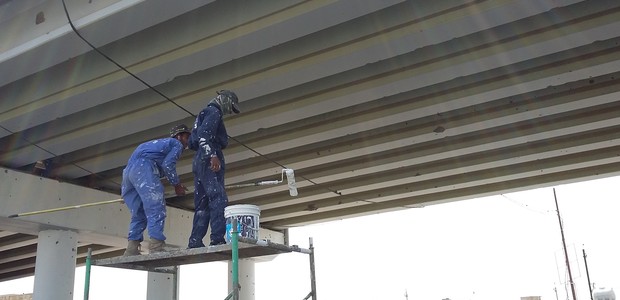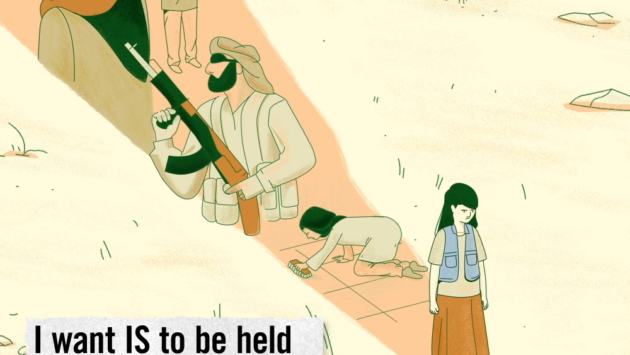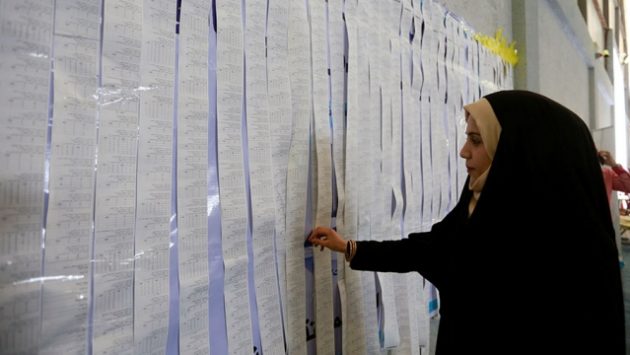The Colour Of Peace: The Young Artists Erasing Extremist History In Central Iraq
Kamal al-Ayash, Niqash

Since April this year a strange group of men have been touring the streets of the central Iraqi city of Fallujah. They are an art teacher and four of his students. Haytham al-Jumaili, who doesn’t want to give his real name, roams the city looking for slogans that the extremist group known as Daesh may have painted, particularly on local school walls.
The extremist Daesh group were in charge of the city for almost a year and half and while they were there, daubed pro-extremist slogans on walls and bridges where passers-by could see them. Al-Jumaili’s plan is to get rid of them all.
NIQASH met al-Jumaili one evening, shortly after the Ramadan fast was broken, while he was repainting a bridge in the central city.
“Our goal is to get rid of the slogans and symbols of Daesh, which can be seen on more than 500 schools here and also on bridges and in public places in the city,” al-Jumaili explained.
The main challenge for the group, who all originate from the fine art school in Fallujah, is financial. They donate their own time and, up until recently when the local council said it would contribute, have been paying for their own materials.
One of the participants in the campaign is Mohammed Ali, a student from the college. The young man has found the exercise rewarding. “Since I started volunteering, I have been feeling like a good person who really gives back to their community,” he explains. “We did not really start doing this for any reward and in fact, our greatest reward is when local people praise us for what we are doing.”
“I feel like a different person,” al-Jumaili himself says. “I didn’t know how people were going to react but these days people stop me in the street and want to take selfies with me, as if I am a sports star or a celebrity!”
They are correct, says Jumma al-Halbusi, a Falluja taxi driver, who lives in the city centre but drives all around town. He believes that the IS group’s slogans are bitter reminders of the recent past and that they are provocative.
“When I watch these young people doing these great paintings, it really fills me with joy,” al-Halbusi told NIQASH. “We are so indebted to them. People here just want to live in peace, we are tired of wars and insecurity,” he concludes.
If they are not doing the actual painting the young people of Fallujah are celebrating the paintings. Al- Jumaili says it is quite common to see people stopping to take pictures that he knows they post to social media later on.
This kind of thing can have a big impact on locals, says Mohammed al-Dulaimi, a lecturer in psychology at the University of Anbar, especially families who are returning here after being displaced, who are usually greeted by scenes of destruction and damage. “The timing is so important,” al-Dulaimi says, “especially for students returning to school, because so many of the school walls became places for the terrorist message.”
Thanks to their spread on social media, the painters of Fallujah have also been asked to come to other provinces and work on similar projects. But for now they’re staying in their own city; they say it is enough that people share the pictures of their painting online and counter the image of all citizens of Fallujah as terrorists or Daesh-supporters.



